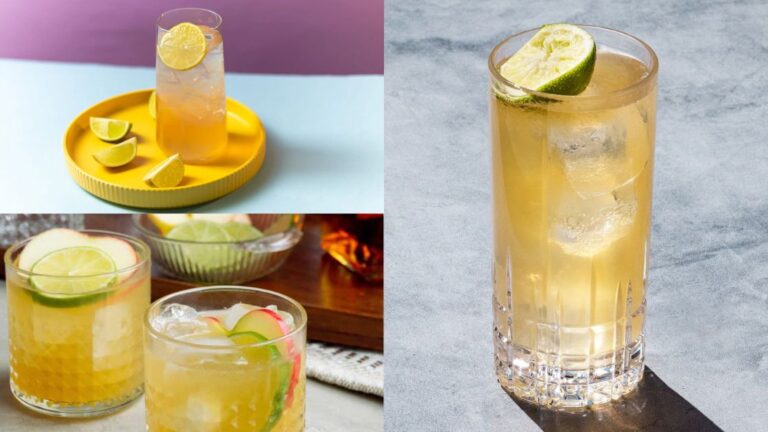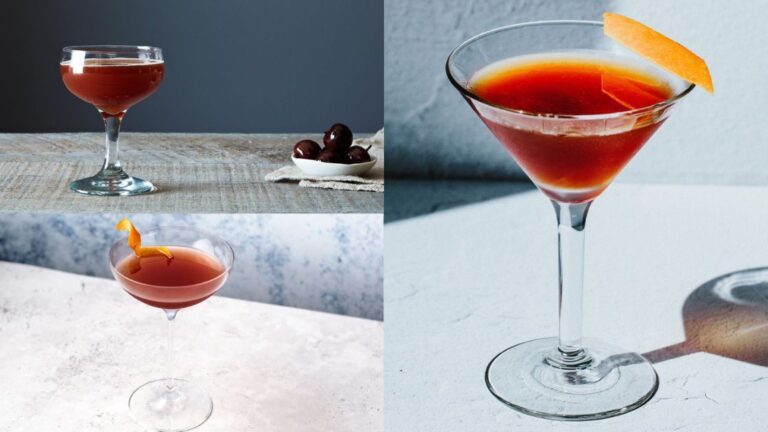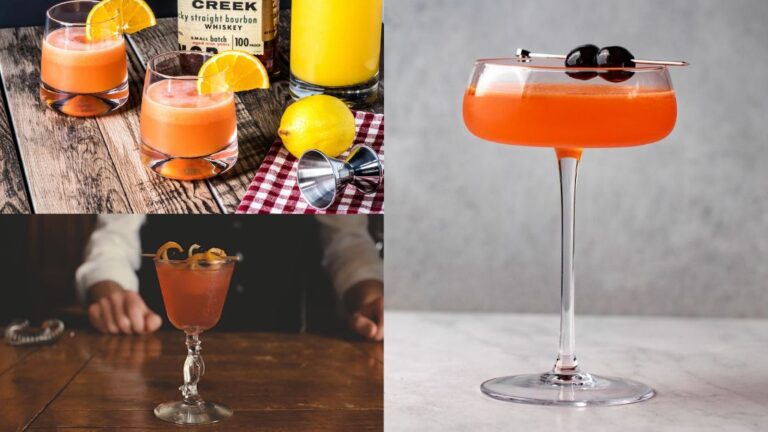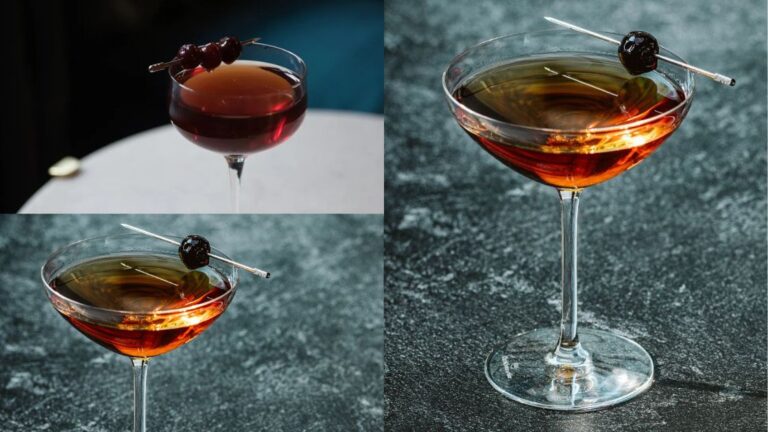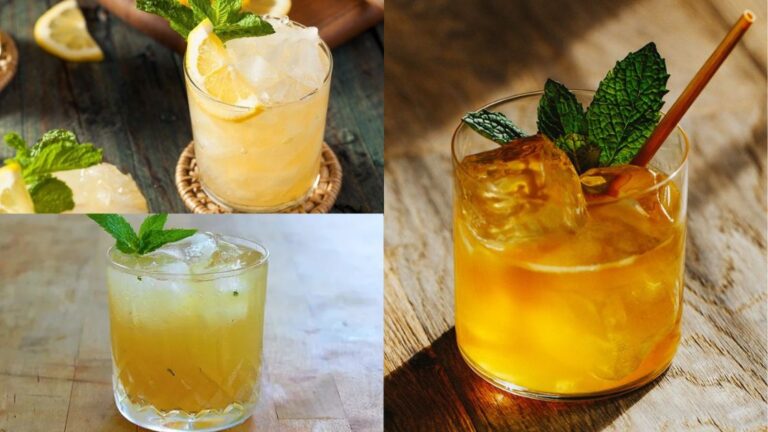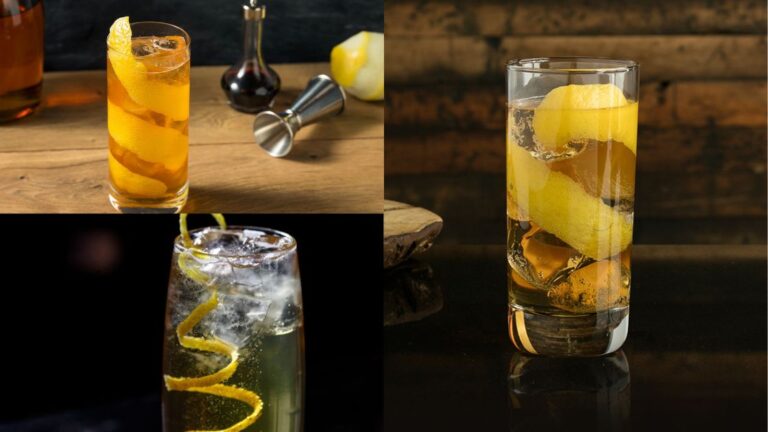Imagine a world where every sip you take unlocks a journey through time, flavor, and culture. Welcome to the world of single malt whiskey—a drink that’s as much an art form as it is a science. From the smoky, peaty depths of Islay to the delicate floral notes of the Lowlands, single malt whiskey invites you to explore a universe of rich, complex flavors. Whether you’re a seasoned connoisseur or a curious beginner, this guide will immerse you in the essence of what makes each bottle a masterpiece, shaped by craftsmanship, tradition, and the very environment that birthed it.
Exploring Single Malt Whiskey
Single malt whiskey: the potion that holds a tale in every sip. This beloved drink leaves both newbies and seasoned fans eager to uncover its robust flavors and storied past.
The Essence of Single Malts
What really makes single malt whiskey so special? First off, it’s all about the single distillery vibe, using just malted barley as the grain of choice. This precise process makes it a collector’s gem, often leading to its high demand and price tags.
Every batch gets its character from copper pot stills, where each distillery has a quirky method up its sleeve. Take the James Sedgwick Distillery in South Africa; their Three Ships single malt tells the story of how local climates leave their mark on each bottle—it’s like a weather forecast in a glass!
| Key Characteristics | Description |
|---|---|
| Base Ingredient | Malted barley |
| Distillation | Single distillery |
| Still Type | Copper pot stills |
Distinct Characteristics of Single Malts
No two single malts taste alike—region, how they’re made, and they’ve been aged together build each one’s unique profile. These whiskies are like a passport for your taste buds, ready to venture into a realm of surprises.
Regional Impact
When folks think of single malt, Scotland usually takes the spotlight. A mere 10% of whiskies from this iconic locale get the honor of being called single malts (World Whisky Day). But Scotland doesn’t have a monopoly; Japan, Taiwan, India, Australia, Sweden, the US, and Italy each put their own spin on it (Taster’s Club).
Flavor Profiles
It’s the rich array of flavors that make single malt whiskey a stand-out performer in the spirit world:
- Peaty and Smoky: Your go-to for Islay malts.
- Delicate and Floral: Lowland beauties bring it.
- Fruity and Sweet: Speyside’s specialty.
- Rich and Robust: Campbeltown in a nutshell.
- Diverse and Complex: A Highland experience like no other.
These regional influences whip up a vast range, turning the tasting of single malt whiskey into a fascinating tour of different scents and taste notes.
By getting to know these features, you’ll grasp why single malt whiskey is often in a league of its own. Wet your whistle further with our guides on whiskey cocktail recipes and find more about types of whiskey.
Regional Influence on Single Malts
The place a single malt is from is a big deal—it gives the whiskey its personality. Let’s see what the flavor fuss is all about in these world-famous whiskey spots.
Islay’s Peaty Profile
If you’ve ever sipped Islay, you know it’s like a campfire in a glass. Thank peat for that smoke show. A word of warning—some say it tastes like a band-aid, but it’s a love letter to your taste buds if you’re into big, bold flavors.
| Distillery | Flavor Adventure |
|---|---|
| Laphroaig | Smoky ocean breeze with a side of medicine |
| Lagavulin | Peaty party with dried fruit melodies |
| Ardbeg | Smoke monster with citrus zing |
Lowland’s Delicate Flavors
Lowland whiskies are like the whisper of a spring breeze in a glass. Lighter and sweet, these guys are triple-distilled—it’s like they went to finishing school for whiskey.
| Distillery | Flavor Adventure |
|---|---|
| Auchentoshan | Smooth opera of vanilla and almonds |
| Glenkinchie | Floral flirt, with a tiny toffee encore |
Speyside’s Fruity Notes
Speyside is basically the fruit bowl of whiskey land. Expect apples, pears, and a honey-sweet symphony that’s often thanks to those sherry casks.
| Distillery | Flavor Adventure |
|---|---|
| Glenfiddich | Pear parade with a sneaky hint of peat |
| Macallan | Dried fruit disco with a spice twist |
| Balvenie | Honey harmonies and vanilla vibes |
Campbeltown’s Robust Taste
Campbeltown—where the whiskey talks back! Briny, salty, smoky, with vanilla and fruit cameos. Perfect for those who like a little drama in their glass.
| Distillery | Flavor Adventure |
|---|---|
| Springbank | Salty sea tale with toffee and fruit snacks |
| Glen Scotia | Seaside vanilla latte with a spicy kicker |
Highland’s Diverse Expressions
Highland whiskies are like the all-you-can-eat buffet of whiskey ranges—from sweet treats to smoky surprises. This diversity serves as a matchmaker for curious palettes.
| Distillery | Flavor Adventure |
|---|---|
| Glenmorangie | Flower fields with a fruit and vanilla picnic |
| Oban | Smoke with a rogue wave of citrus and sea salt |
| Dalmore | Chocolatier dreams with a side of coffee and spice |
Wanna know more about the whiskey world? Check out our tales on bourbon vs. whiskey and types of whiskey. Exploring these regions will add some zing to your whiskey wisdom.
Crafting Single Malt Whiskey
When it comes to single malt whiskey, it’s all about striking that perfect balance in crafting, where every step shapes its taste and character. We’re about to break down three crucial bits of the process: how it’s distilled, aged in barrels, and the magic touch of its surroundings.
Distillation Methods
Single malt whiskey and pot still distillation go together like peanut butter and jelly. It’s been the tried and true method using copper pot stills for ages. This method gives single malt its standout flavors, different from those of grain whiskies.
So, what’s up with pot stills? They work in batches, unlike the non-stop method of column stills for grain whiskies. The copper’s not there just for looks; it kicks out sulfur compounds, giving the whiskey its rich, layered taste. Single malts usually go through not one, but two or even three distillations, cleaning up the spirit and boosting its flavor.
Here’s a quick peek:
| Stills | Process | Whiskey Type | Flavor Complexity |
|---|---|---|---|
| Pot Stills | Batch Distillation | Single Malt | High |
| Column Stills | Continuous Distillation | Grain Whiskey | Moderate |
Barrel Maturation
Turning that early spirit into sensational whiskey relies heavily on the barrels where it chills out. The time it spends mellowing in wooden barrels really amps up the flavor and smoothness.
These barrels are charred inside. This isn’t just for show—it kicks out bad flavors and brings in some tasty new ones. Charring also changes the way the whiskey and wood play together, smoothing out the profile (Whisky Analysis). How long whiskey cozies up in the barrel and what wood goes with it determine what characteristics emerge.
| Maturation Aspect | Effect on Whiskey |
|---|---|
| Barrel Aging | Boosts Flavor Complexity |
| Charring | Purges Bad Stuff, Adds Good Flavors |
| Wood Type | Affects Taste and Color |
If you’re intrigued by how barrels influence taste, check out our page on the best whiskey brands to see how different spots use barreling in their own way.
Influence of Terroir
Terroir isn’t only a fancy word for wine geeks. In whiskey-making, it stands for the way local elements—think environment, weather, and geography—add their bit to the taste of your single malt.
Everything from the water they use to the barley type and even the peculiar vibes of the distillery’s locale plays a part in how the whiskey turns out. Why does whiskey from places like Islay or Speyside have its own zing? It’s terroir at work way before aging kicks in.
Curious about how these influences vary? Our guide on types of whiskey will give you some cool insights on terroir differences worldwide.
Grasping these key parts—how it’s distilled, aged, and where it’s from—makes you appreciate what goes into your favorite single malt whiskey. Whether you’re just starting out or you’ve been sipping for years, knowing this stuff makes every glass a deeper experience and shines a light on the nuances of this beloved drink.
Single Malt Whiskey Production Worldwide
The Appeal of Single Malts
Ah, single malt whiskey! It’s like the quirky uncle at the whisky family gathering everyone wants to chat with. This isn’t just liquor; it’s a masterpiece on its own. It’s cherished by collectors and whiskey nerds alike for its unique flair and bold flavor combos that make it a true standout. Unlike its blending cousins, single malts hail from just one distillery, showing off the distillery’s unique flavor fingerprint (World Whisky Day) (Serious Eats).
Global Single Malt Varieties
If you think single malt whiskey is just a Scottish affair, think again! The world is full of single malt wonders beyond the homeland of kilts and bagpipes. Let’s take a look at some secret whiskey hubs:
Scotland
Scotland—not just famous for its haggis—is like the OG of single malts. Areas like Islay, Speyside, and the Highlands each toss their unique contributions into the whiskey mix. Islay’s all about those smoky peaty notes while Speyside prefers to get all fruity on you.
Japan
Japan doesn’t mess around when it comes to single malt. With their eye for detail and balance, Japanese single malts like Yamazaki and Hakushu have snagged quite a few fans worldwide. They’ve even given Scotland a run for its money!
Taiwan
Ever tried a Taiwanese single malt? The Kavalan distillery is making waves with its rich, tropical flair, courtesy of Taiwan’s uber-steamy weather that ages the whiskey faster. You’re welcome, impatient drinkers!
India
India’s big on spice and flavors that pack a punch, and their single malts are no different. Brands like Amrut and Paul John dive straight into strong, bold tastes. The hot weather there? It makes the whiskey mature faster, so more flavors hit you sooner.
Australia
Down under, single malts like Starward distill a whole mix of climates into their bottles. The Aussies are the new kids in whiskey-town, but they’ve got a knack for crafting something distinct and refreshing.
Sweden and Italy
Yeah, you heard right—Sweden and Italy are dabbling in the single malt game. With Mackmyra in Sweden and Puni in Italy, these countries bring their own regional twists to the whiskey bench.
| Country | Popular Distilleries | Flavor Vibes |
|---|---|---|
| Scotland | Islay, Speyside, Highlands | Smoky, Fruity, Wild |
| Japan | Yamazaki, Hakushu | Nitty-Gritty Craft, Harmonious |
| Taiwan | Kavalan | Exuberant, Tropical |
| India | Amrut, Paul John | Hearty, Quick-Flavored |
| Australia | Starward | Fresh, Newbie-Style |
| Sweden | Mackmyra | Quirky, Local Spin |
| Italy | Puni | Remarkably Native |
Dipping your toe into the vast world of global single malt varieties can be like opening a surprise package on your birthday—exciting with each new sip! Whether you’re a novice or a seasoned whiskey warrior, there’s always a new taste explosion waiting. Curious about how different whiskeys stack up against one another? Check out our guide on bourbon vs. whiskey. Or dive into the best whiskey brands and unlock a new level of appreciation for this delightful drink. Cheers!
Tasting and Pairing Single Malts
Enjoying Single Malt Whiskey
Single malt whiskey is a little slice of heaven that you can enjoy in a bunch of different ways. Trying out different tasting methods can really boost your love for this magical spirit.
Ways to Enjoy
- Straight Up: Just as it is. This way, you get the whole shebang of flavors the whiskey’s got to offer.
- On the Rocks: A few ice cubes can chill things out and soften the whiskey’s punch. Whiskey buffs can’t quite agree on this one, though.
- With Water or Soda: A splash here or there can lift the curtains on those hidden flavors, making the whiskey more inviting. Want more ideas? Check out whiskey cocktail recipes.
Food Pairing with Single Malts
Mashing up single malt whiskey with food isn’t just fun – it can take your dining vibes to a whole new level. Just think about the whiskey’s vibes when you’re matchmaking.
General Pairing Guide
| Whiskey Flavor Profile | Food Pairings |
|---|---|
| Peaty and Smoky | Grilled meats, bold cheeses |
| Fruity and Sherry-Finished | Dark chocolate, dried fruits |
| Light and Floral | Seafood, fresh salads |
| Spicy and Rich | Hot dishes, spiced desserts |
- Peaty and Smoky: They rock a strong, smoky flavor, especially those from Islay. These whiskeys are made for grilled meats and strong cheeses.
- Fruity and Sherry-Finished: Whiskeys like Teeling Single Malt, aged in sherry and wine barrels, are a match made in heaven with dark chocolate and dried fruits (Taster’s Club).
- Light and Floral: These easygoing whiskeys shimmy up nicely next to seafood and fresh salads.
- Spicy and Rich: When things get spicy, pair these whiskeys with hot dishes or desserts that bring out spices like cinnamon (World Whisky Day).
Playing around with different food pairings is a tasty way to kick back with single malt whiskey. Curious about even more whiskey variations? Check out our types of whiskey section.
Aging in Whiskey Production
Turning plain old booze into the liquid gold we call single malt whiskey is no small feat. It’s like a behind-the-scenes magic show where time, wood, and a bit of chemistry turn a spirit into something folks rave about.
Why Aging Matters
When you first step into the single malt whiskey arena, you might hear folks chatting about “aging” like it’s a secret ritual. And they’d be right, sort of. Aging is like seasoning a good stew: it brings out flavors, adds a sweet aroma, and generally makes whiskey worth the wait. Scotch, for example, gets comfy in oak barrels for at least three years, sucking up flavors and nerdy notes courtesy of chemistry class (Sipdark).
Aging can be a game-changer, mellowing out the young spirit’s sharp edges while letting it gulp down all those oaky, vanilla, and caramel goodies. This soaking time gives the whiskey its deep, amber color, too. That’s why whiskey enthusiasts often drool over the ones that have had a nice, long nap in the barrel.
How Long Does Your Whiskey Need?
Every whiskey has its rules for aging, mostly set up to make the snobs and the law happy. Here’s a chart showing how long some famous types need to hang out in the barrel:
| Type of Whiskey | Minimum Aging Time | Fun Facts |
|---|---|---|
| Single Malt Scotch | 3 years | Often lounges longer for extra flavor charm (World Whisky Day) |
| Bourbon | 2 years | “Straight” bourbon must chill in new charred barrels (Bourbon vs. Whiskey) |
| Irish Whiskey | 3 years | Goes wild with different oak barrel types |
| Canadian Whiskey | 3 years | Usually prefers a long-age siesta for the smoothness |
Different Whiskey, Different Aging Vibes
While the age trick works across the whiskey board, each type vibes a little differently based on what it’s made of and the barrel it’s in. Single malt relies heavily on malted barley magic and often sticks around longer for that lush taste. But grain whiskies, part of blends, need more time to match the flavor punch (WhiskyAnalysis).
Quick fact: during a tough market patch, longer aging became a badge of honor. Yet, it was more about paying for production than guaranteeing top-notch quality. That’s why No Age Statement (NAS) whiskies are now having a moment, showing age isn’t the be-all and end-all (WhiskyAnalysis).
Master blenders have the oh-so-fun task of mixing and matching whiskies from various barrels to nail a consistent flavor—you can thank the likes of Springbank or Glenmorangie for that drink Serious Eats).
Aging is just part of the magic trick that brings single malt whiskey to your glass. Whether you’re sipping a vintage Scotch or a bold newcomer without an age tag, knowing aging’s role might just have you appreciating each sip a tad more. Curious about the best whiskey brands or dream of a whiskey cocktail? Check out our other articles to quench your thirst!
